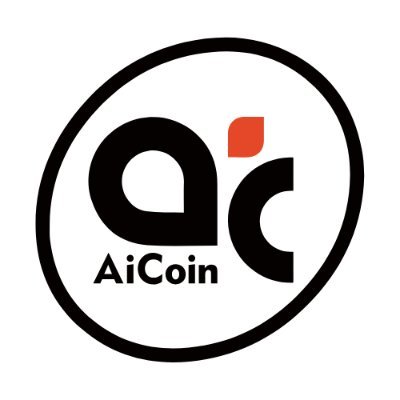Bitget: ¡En el Top 4 por volumen de trading diario global!
Cuota de mercado de BTC62.53%
Nuevos listados en Bitget : Pi Network
BTC/USDT$77448.24 (-1.08%)Índice de miedo y codicia18(Miedo extremo)
Índice de la temporada de altcoins:0(Temporada de Bitcoin)
Monedas listadas en el pre-mercadoBABY,PAWS,WCTFlujo neto total de ETF en spot de Bitcoin -$326.3M (1d); -$595.2M (7d). Paquete de obsequios de bienvenida para nuevos usuarios por valor de 6.200 USDT.Reclamar ahora
Tradea en cualquier momento y lugar con la app de Bitget. Descargar ahora
Bitget: ¡En el Top 4 por volumen de trading diario global!
Cuota de mercado de BTC62.53%
Nuevos listados en Bitget : Pi Network
BTC/USDT$77448.24 (-1.08%)Índice de miedo y codicia18(Miedo extremo)
Índice de la temporada de altcoins:0(Temporada de Bitcoin)
Monedas listadas en el pre-mercadoBABY,PAWS,WCTFlujo neto total de ETF en spot de Bitcoin -$326.3M (1d); -$595.2M (7d). Paquete de obsequios de bienvenida para nuevos usuarios por valor de 6.200 USDT.Reclamar ahora
Tradea en cualquier momento y lugar con la app de Bitget. Descargar ahora
Bitget: ¡En el Top 4 por volumen de trading diario global!
Cuota de mercado de BTC62.53%
Nuevos listados en Bitget : Pi Network
BTC/USDT$77448.24 (-1.08%)Índice de miedo y codicia18(Miedo extremo)
Índice de la temporada de altcoins:0(Temporada de Bitcoin)
Monedas listadas en el pre-mercadoBABY,PAWS,WCTFlujo neto total de ETF en spot de Bitcoin -$326.3M (1d); -$595.2M (7d). Paquete de obsequios de bienvenida para nuevos usuarios por valor de 6.200 USDT.Reclamar ahora
Tradea en cualquier momento y lugar con la app de Bitget. Descargar ahora

Relacionado con la moneda
Calculadora de precios
Historial de precios
Predicción de precios
Análisis técnico
Guía de compra de la moneda
Categoría cripto
Calculadora de ganancias
Relacionado con el trading
Comprar/vender
Depositar/retirar
Spot
Margen
Futuros USDT-M
Futuros Coin-M
Bots de trading
Copy trading
Earn
Pre-mercado
Actualizaciones de la moneda
Noticias de Storm Warfare
Alerta de Storm Warfare
Calendario de eventos
ICO
Airdrop

Precio de Storm WarfareJAN
Listada
Moneda de cotización:
EUR
€0.002362-1.06%1D
Gráfico de precios
TradingView
Última actualización el 2025-04-09 15:28:35(UTC+0)
Capitalización de mercado:--
Capitalización de mercado totalmente diluida:--
Volumen (24h):€33,501.59
Volumen en 24h/Capitalización de mercado:0.00%
Máximo 24h:€0.002394
Mínimo 24h:€0.002318
Máximo histórico:€0.2734
Mínimo histórico:€0.002318
Suministro circulante:-- JAN
Suministro total:
1,000,000,000JAN
Tasa de circulación:0.00%
Suministro máx.:
1,000,000,000JAN
Precio en BTC:0.{7}3375 BTC
Precio en ETH:0.{5}1758 ETH
Precio en la capitalización de mercado de BTC:
--
Precio en la capitalización de mercado de ETH:
--
Contratos:
0x5a92...8e416Dd(Ethereum)
Más
¿Qué opinas hoy de Storm Warfare?
Nota: Esta información es solo de referencia.
Precio actual de Storm Warfare
El precio de Storm Warfare en tiempo real es de €0.002362 por (JAN / EUR) hoy con una capitalización de mercado actual de €0.00 EUR. El volumen de trading de 24 horas es de €33,501.59 EUR. JAN a EUR el precio se actualiza en tiempo real. Storm Warfare es del -1.06% en las últimas 24 horas. Tiene un suministro circulante de 0 .
¿Cuál es el precio más alto de JAN?
JAN tiene un máximo histórico (ATH) de €0.2734, registrado el 2024-02-05.
¿Cuál es el precio más bajo de JAN?
JAN tiene un mínimo histórico (ATL) de €0.002318, registrado el 2025-04-09.
Predicción de precios de Storm Warfare
¿Cuál será el precio de JAN en 2026?
Según el modelo de predicción del rendimiento histórico del precio de JAN, se prevé que el precio de JAN alcance los €0.002960 en 2026.
¿Cuál será el precio de JAN en 2031?
En 2031, se espera que el precio de JAN aumente en un +38.00%. Al final de 2031, se prevé que el precio de JAN alcance los €0.006364, con un ROI acumulado de +168.30%.
Historial del precio de Storm Warfare (EUR)
El precio de Storm Warfare fluctuó un -93.21% en el último año. El precio más alto de JAN en EUR en el último año fue de €0.03810 y el precio más bajo de JAN en EUR en el último año fue de €0.002318.
FechaCambio en el precio (%) Precio más bajo
Precio más bajo Precio más alto
Precio más alto 
 Precio más bajo
Precio más bajo Precio más alto
Precio más alto 
24h-1.06%€0.002318€0.002394
7d-6.87%€0.002318€0.002540
30d-19.49%€0.002318€0.002961
90d-31.38%€0.002318€0.003417
1y-93.21%€0.002318€0.03810
Histórico-90.66%€0.002318(2025-04-09, Hoy )€0.2734(2024-02-05, 1 año(s) atrás )
Información del mercado de Storm Warfare
Capitalización de mercado de Storm Warfare
Capitalización de mercado
--
Capitalización de mercado totalmente diluida
€2,361,780.54
Clasificación de mercado
Holdings por concentración de Storm Warfare
Ballenas
Inversores
Minoristas
Storm Warfare direcciones por tiempo en holding
Holders
Cruisers
Traders
Gráfico de precios de coinInfo.name (12) en tiempo real

Clasificación de Storm Warfare
Clasificaciones promedio de la comunidad
4.6
Este contenido solo tiene fines informativos.
JAN a la moneda local
1 JAN a MXN$0.051 JAN a GTQQ0.021 JAN a CLP$2.621 JAN a UGXSh9.651 JAN a HNLL0.071 JAN a ZARR0.051 JAN a TNDد.ت0.011 JAN a IQDع.د3.421 JAN a TWDNT$0.091 JAN a RSDдин.0.281 JAN a DOP$0.161 JAN a MYRRM0.011 JAN a GEL₾0.011 JAN a UYU$0.111 JAN a MADد.م.0.021 JAN a AZN₼01 JAN a OMRر.ع.01 JAN a SEKkr0.031 JAN a KESSh0.341 JAN a UAH₴0.11
- 1
- 2
- 3
- 4
- 5
Última actualización el 2025-04-09 15:28:35(UTC+0)
Cómo comprar Storm Warfare(JAN)

Crea tu cuenta gratuita en Bitget
Regístrate en Bitget con tu dirección de correo electrónico/número de teléfono móvil y crea una contraseña segura para proteger tu cuenta.

Verifica tu cuenta
Verifica tu identidad ingresando tu información personal y cargando una identificación válida con foto.

Convierte Storm Warfare a JAN
Utiliza una variedad de opciones de pago para comprar Storm Warfare en Bitget. Te mostraremos cómo.
Tradea futuros perpetuos de JAN
Después de registrarte en Bitget y comprar tokens de USDT o JAN exitosamente, puedes empezar a hacer trading con derivados, incluidos futuros de JAN y trading con margen para aumentar tus ingresos.
El precio actual de JAN es de €0.002362, con un cambio en el precio en 24 horas del -1.06%. Los traders pueden obtener ganancias yendo en long o en short en futuros de JAN.
Únete al copy trading de JAN siguiendo a traders elite.
Después de registrarte en Bitget y comprar tokens de USDT o JAN exitosamente, también puedes empezar a hacer copy trading siguiendo a traders elite.
Nuevos listados en Bitget
Nuevos listados
Comprar más
Preguntas frecuentes
¿Cuál es el precio actual de Storm Warfare?
El precio en tiempo real de Storm Warfare es €0 por (JAN/EUR) con una capitalización de mercado actual de €0 EUR. El valor de Storm Warfare sufre fluctuaciones frecuentes debido a la actividad continua 24/7 en el mercado cripto. El precio actual de Storm Warfare en tiempo real y sus datos históricos están disponibles en Bitget.
¿Cuál es el volumen de trading de 24 horas de Storm Warfare?
En las últimas 24 horas, el volumen de trading de Storm Warfare es de €33,501.59.
¿Cuál es el máximo histórico de Storm Warfare?
El máximo histórico de Storm Warfare es €0.2734. Este máximo histórico es el precio más alto de Storm Warfare desde su lanzamiento.
¿Puedo comprar Storm Warfare en Bitget?
Sí, Storm Warfare está disponible actualmente en el exchange centralizado de Bitget. Para obtener instrucciones más detalladas, consulta nuestra útil guía Cómo comprar .
¿Puedo obtener un ingreso estable invirtiendo en Storm Warfare?
Desde luego, Bitget ofrece un plataforma de trading estratégico, con bots de trading inteligentes para automatizar tus trades y obtener ganancias.
¿Dónde puedo comprar Storm Warfare con la comisión más baja?
Nos complace anunciar que plataforma de trading estratégico ahora está disponible en el exchange de Bitget. Bitget ofrece comisiones de trading y profundidad líderes en la industria para garantizar inversiones rentables para los traders.
¿Dónde puedo comprar Storm Warfare (JAN)?
Sección de video: verificación rápida, trading rápido

Cómo completar la verificación de identidad en Bitget y protegerte del fraude
1. Inicia sesión en tu cuenta de Bitget.
2. Si eres nuevo en Bitget, mira nuestro tutorial sobre cómo crear una cuenta.
3. Pasa el cursor por encima del ícono de tu perfil, haz clic en "No verificado" y haz clic en "Verificar".
4. Elige tu país o región emisora y el tipo de ID, y sigue las instrucciones.
5. Selecciona "Verificación por teléfono" o "PC" según tus preferencias.
6. Ingresa tus datos, envía una copia de tu ID y tómate una selfie.
7. Envía tu solicitud, ¡y listo! Habrás completado la verificación de identidad.
Las inversiones en criptomoneda, lo que incluye la compra de Storm Warfare en línea a través de Bitget, están sujetas al riesgo de mercado. Bitget te ofrece formas fáciles y convenientes de comprar Storm Warfare, y hacemos todo lo posible por informar exhaustivamente a nuestros usuarios sobre cada criptomoneda que ofrecemos en el exchange. No obstante, no somos responsables de los resultados que puedan surgir de tu compra de Storm Warfare. Ni esta página ni ninguna parte de la información que incluye deben considerarse respaldos de ninguna criptomoneda en particular.
Bitget Insights

Cryptonews Official
23h
U.S. DOJ disbands the National Cryptocurrency Enforcement Unit: report
The U.S. Department of Justice is disbanding the National Cryptocurrency Enforcement Unit, citing its ‘reckless strategy’ in prosecuting crypto firms in the previous administration.
According to a recent report by Fortune, a four-page memo issued by U.S. Deputy Attorney General Todd Blanche revealed the decision to disband the crypto-related investigation unit “effective immediately.” The decision is part of the Trump administration’s efforts to loosen oversight on the crypto industry.
““The Department of Justice is not a digital assets regulator. However, the prior Administration used the Justice Department to pursue a reckless strategy of regulation by prosecution,” stated Blanche in the memo.
Following the announcement, Blanche also urged DOJ staff members to spend less time pursuing cases against crypto exchanges, mixers and “offline wallets.” Instead, they are directed to focus on prosecuting “individuals who victimize digital asset investors.”
The National Cryptocurrency Enforcement Unit was established under Joe Biden’s presidency as a joint task force that consisted of prosecutors from the Justice Department’s money laundering , cybercrime units, as well as other district offices.
The The National Cryptocurrency Enforcement Unit task force oversaw some of the largest crypto cases in the country. One in particular was the case against cryptocurrency mixing service Tornado Cash , which was prosecuted for money-laundering charges.
Tornado Cash co-founder Roman Storm stated on Jan. 26 that he faces up to 45 years of imprisonment for operating an unlicensed money-transmitting business, conspiracy to commit money laundering and sanction evasion. Many crypto industry figures stood in support of Tornado Cash, viewing it as a case that criminalized software developers.
Most recently on March 21, the U.S. Treasury lifted sanctions against Tornado Cash, allowing Americans to access it once more.
The NCET also prosecuted Avraham Eisenberg, a hacker who exploited a crypto trading protocol Mango Markets for more than $114 million. Last January, the platform officially announced it was completely shutting down operations, giving users a deadline to close positions before they can no longer access the site.
In addition, the joint investigation unit had also led investigations that scrutinized North Korean actors who helped launder funds stolen from crypto hacks.
UP+5.68%
JOE+4.76%

Aicoin-EN-Bitcoincom
4d
Pectra Upgrade Offers Hope Amid Ethereum’s 2025 Struggles, Expert Says
Ethereum’s ( ETH) performance since the start of 2025 has been lackluster compared to bitcoin ( BTC) and the broader cryptocurrency market. After beginning the year trading above $3,300, ETH declined, reaching a low of $1,805.40 as of April 4, 2025. In contrast, bitcoin ( BTC), which rallied from under $69,000 on Nov. 5, 2024, to peak at just over $109,000 on Jan. 20, 2025, was down by approximately 10%, compared to ETH’s 45%.
This divergence in performance has led to frustration among ETH holders and fans, who expected the cryptocurrency to outshine or at least match BTC’s growth. However, some experts remain bullish on ETH’s long-term prospects. They predict ETH potentially reaching $5,000 by the end of 2025, and some even see it surpassing $10,000 in the near future.
The experts point to ongoing ecosystem upgrades, including the upcoming Pectra upgrade, as factors likely to kickstart a rebound that could see ETH eventually matching BTC’s strong performance. Still, some ETH holders and supporters continue to vent about the ETH price decline, which they attribute to both a lack of progress and the Ethereum team’s perceived failure to stem the regression. However, Ethereum proponents push back against this narrative, arguing that it ignores the real work being done to improve the protocol.
Alex Loktev, CRO at P2P.org, acknowledges the frustration surrounding ethereum’s recent price performance, but attributes it to the network’s focus on foundational development rather than hype-driven narratives. He argues that Ethereum’s shift to Proof-of-Stake (PoS), the implementation of EIP-1559, and the build-out of its Layer-2 ecosystem, while not immediately impacting price, are crucial for long-term stability and scalability.
Loktev notes that other crypto or related assets such as bitcoin exchange-traded funds (ETF), artificial intelligence (AI) tokens, and memecoins have captured market attention. This has left Ethereum to work on its infrastructure. However, he remains cautiously optimistic for 2025, anticipating positive impacts from the Pectra upgrade, potential ETH ETFs with staking, and a maturing Layer-2 ecosystem. He believes ETH could surpass previous highs with favorable market conditions.
With respect to the Pectra upgrade, Loktev said this change promises to reshape the landscape of staking and potentially inject renewed vigor into the Ethereum ecosystem. In fact, Loktev sees the Pectra upgrade as a crucial step in strengthening Ethereum’s economic foundation. The upgrade, he argues, makes staking significantly safer.
“Look at the numbers – slashing penalties dropping by up to 128x makes staking dramatically safer. For institutional money that’s been sitting on the sidelines, worried about tail risk, this removes a major barrier. Combined with auto-compounding, we’ve got a seriously improved staking proposition,” Loktev stated.
Furthermore, the Pectra upgrade, slated for April 30, is said to introduce auto-compounding, enhancing the overall staking proposition. Loktev anticipates the staking ratio, currently around 31%, to climb towards 40-45% within the next year or two from the upgrade. Although the upgrade alone may not immediately “pump” ETH’s price, Loktev believes it will strengthen Ethereum’s economic fundamentals by locking up more supply and creating increased yield opportunities within the decentralized finance (DeFi) sector.
By addressing concerns surrounding staking risks and enhancing yield opportunities, the upgrade could pave the way for increased institutional adoption and a more robust Ethereum ecosystem.
Meanwhile, Loktev claims the upgrade, which increases validators with Maximum Effective Balances (MEB) from 32 to up to 2048 ETH, is poised to bring significant operational efficiencies and risk reductions to the network. While some might question the impact on decentralization, Loktev argues that this move addresses crucial practicalities for validator operators.
He highlights the operational burden of running numerous smaller validators. He said: “Running 64 validators instead of one means 64 times the infrastructure complexity, 64 times the monitoring overhead, and 64 times the potential points of failure.”
Beyond operational benefits, Loktev points to the significant advantages for everyday stakers. The introduction of auto-compounding allows consensus layer rewards, which constitute about 75% of total staking returns, to automatically grow validator balances, effectively providing compound interest without manual intervention.
Furthermore, Pectra upgrade dramatically improves the risk profile for validators. Loktev notes that under the current system, a “simple technical hiccup” can result in a 3.28% loss of stake. Post-Pectra, this risk is reduced to a mere 0.19%, representing a 17x reduction in risk exposure.
Looking ahead to 2030, Loktev predicts significant potential for Ethereum, provided the network successfully executes its roadmap and PoS remains effective. He emphasizes that Ethereum’s growing role as essential infrastructure for the digital economy is the key trend to watch, rather than short-term price fluctuations. Loktev concludes that Ethereum’s future success hinges on its ability to scale through Layer-2 solutions and maintain its position as a leading platform for decentralized applications.
免责声明:本文章仅代表作者个人观点,不代表本平台的立场和观点。本文章仅供信息分享,不构成对任何人的任何投资建议。用户与作者之间的任何争议,与本平台无关。如网页中刊载的文章或图片涉及侵权,请提供相关的权利证明和身份证明发送邮件到support@aicoin.com,本平台相关工作人员将会进行核查。
BTC+1.43%
ETH+1.17%

Cryptonews Official
4d
North Korea’s latest crypto hack reveals Web3’s security weakness: pro
Oak Security’s Jan Philipp Fritsche says Web3 needs to stop ignoring basic OPSEC hygiene, especially as state-sponsored threats rise.
As North Korea’s “ClickFake” campaign draws renewed attention to cyberattacks on crypto firms, security experts say Web3’s biggest vulnerability isn’t smart contracts — it’s people.
Jan Philipp Fritsche, Managing Director at Oak Security, argued in a note to crypto.news that most blockchain projects lack even the most basic operational security standards .
Fritsche, a former European Central Bank analyst who now advises and audits protocols says the real risk lies in how teams manage devices, permissions, and production access.
“The ClickFake campaign shows just how easily teams can be compromised,” Fritsche said in a note. “Web3 projects have to assume that most of your employees are exposed to cyber threats outside their work environment.”
For background, North Korea’s Lazarus Group is using a cyber campaign called “ClickFake Interview” targeting cryptocurrency professionals. The group posed as recruiters on LinkedIn and X, luring victims into fake interviews to distribute malware.
The malware, named “ClickFix,” gave attackers remote access to steal sensitive data like crypto wallet credentials. Researchers said Lazarus used realistic documents and full interview conversations to enhance credibility.
Most DAOs and early-stage teams still rely on personal devices — often used for both development and Discord chatting — which leaves them exposed to nation-state level attackers. Unlike traditional enterprises, many DAOs have no way to enforce security standards.
“There’s no way to enforce security hygiene,” Fritsche said. “Too many teams, especially smaller ones, ignore this and hope for the best.”
Fritsche says even the assumption that a device is clean may be flawed. For high-value projects, that means developers should never have the ability to push changes to production unilaterally.
“Company-issued devices with limited privileges are a good start,” Fritsche said. “But you also need fail-safes—no single user should have that kind of control.”
The lesson from traditional finance? Every risk is assumed to be real until proven otherwise.
“In TradFi, you need a keycard just to check your inbox,” Fritsche said. “That standard exists for a reason. Web3 needs to catch up.”
UP+5.68%
PEOPLE+3.51%

Cryptonews Official
2025/04/04 00:05
Hyperliquid’s JELLY exploit could happen to other DeFi protocols, expert warns
An expert from Oak Security has explained what went wrong with the JELLY token exploit, which cost the Hyperliquid exchange $10.63 million.
Reactions are still mounting from an exploit that cost Hyperliquid (HYPE) exchange’s users $10.63 million in losses. The reactions seem to have one thing in common, which is calling out Hyperliquid for its practices.
Dr. Jan Philipp Fritsche, managing director at Oak Security, shared his analysis with crypto.news. According to Fritsche, the exploit wasn’t caused by a bug, but rather was a predictable failure, one that could pose a risk to other DeFi protocols as well.
The JELLY exploit appears to be the result of a coordinated market manipulation by several users. Specifically, one trader opened a $5 million short position on JELLY, only to remove their margin. Hyperliquid was left holding the position, after which other traders coordinated a short squeeze.
“The attacker opened massive opposing positions in JELLY, knowing that one side would collapse and the other would cash out. Because payouts weren’t capped and risk wasn’t isolated, the protocol ate the loss—and the attacker walked away with millions,“ Dr. Jan Philipp Fritsche, Oak Security
Fritsche described the exploit as a “textbook example of unpriced vega risk”, a concept from traditional finance that refers to the implied volatility of an asset. He emphasized that many DeFi protocols still fail to account for this crucial risk metric.
This isn’t the first time industry figures have criticized Hyperliquid over the Jelly incident. Following the exploit, Bitget CEO Gracy Chen called the exchange’s practices “immature, unethical, and unprofessional,” warning that it could become FTX 2.0 .
Although Hyperliquid has pledged to compensate users affected by the exploit, the damage to its reputation may already be done. More importantly, the exploit has drawn attention to broader vulnerabilities in the decentralized finance sector.
In 2024, DeFi exploits cost users $308.7 million in losses. That was more than rug pulls, which accounted for $192.9 million . Just days after the Jelly exploit, a DeFi protocol SIR.trading fell victim to another exploit, losing all of its total value locked of $355,000 .
HYPE+14.50%
S+1.87%

fokus
2025/04/03 18:20
value low holding for now at least, if equities can't break us down today what can?
i mean realistically there is very little chance ES breaches much lower than 5k (no jinx ples)
it seems to me that the relationship between stocks and crypto is sort of inverse dec/jan, where
ME+3.31%
Activos relacionados
Criptomonedas populares
Una selección de las 8 criptomonedas principales por capitalización de mercado.
Agregada recientemente
Las criptomonedas agregadas más recientemente.
Capitalización de mercado comparable
Entre todos los activos de Bitget, estos 8 son los más cercanos a Storm Warfare en capitalización de mercado.


































